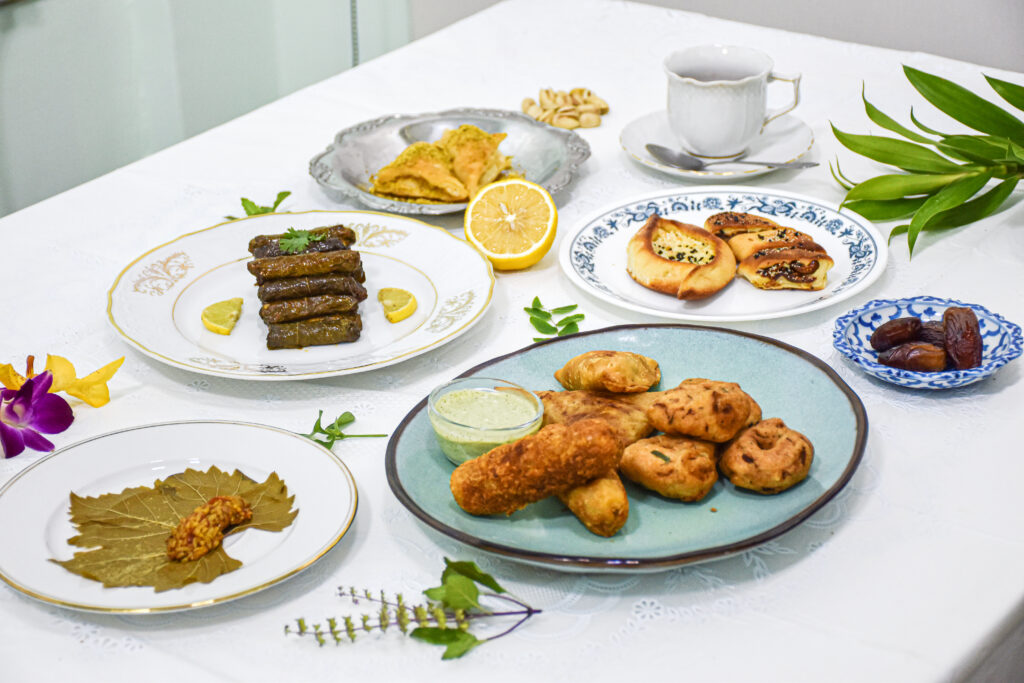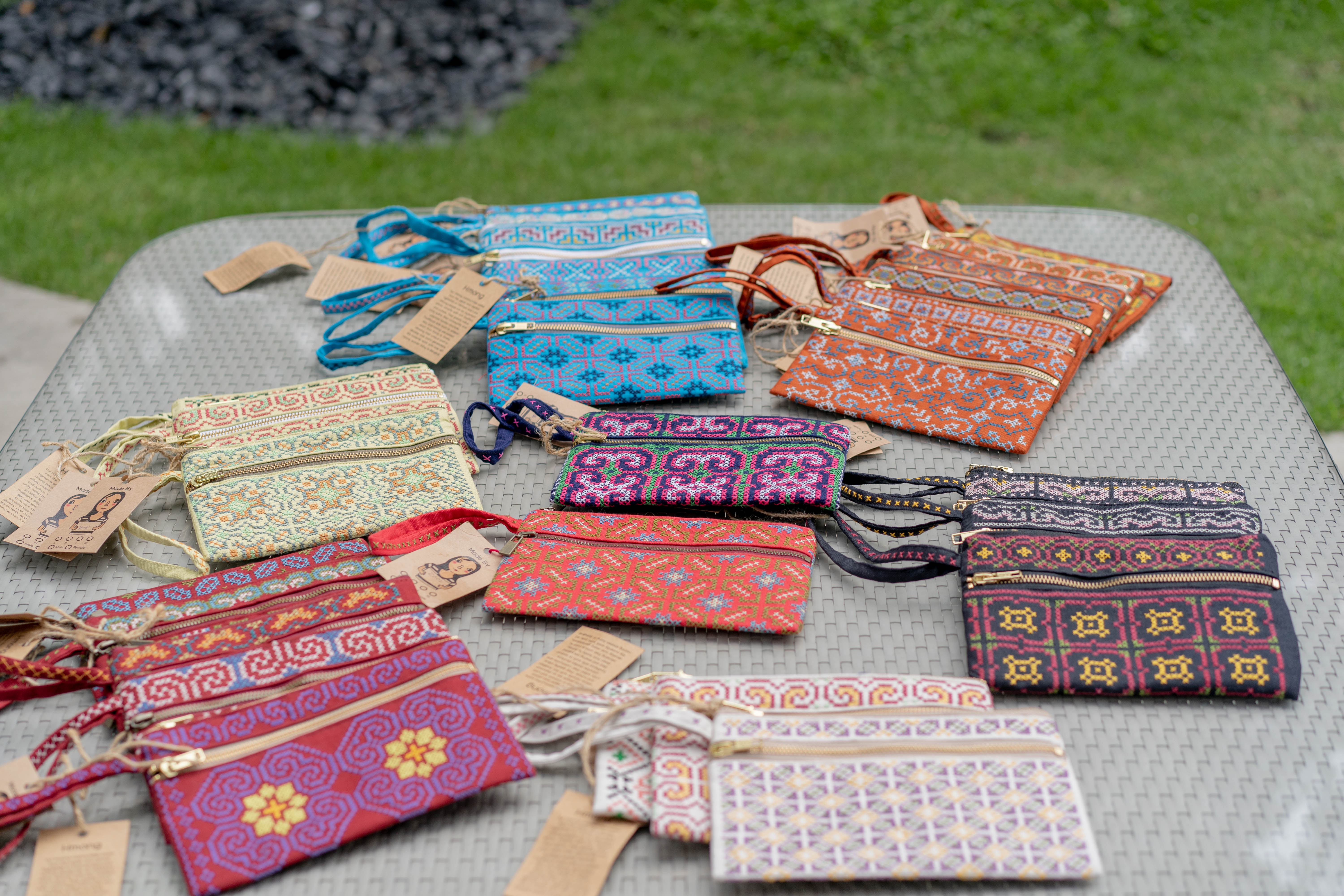Leveraging the capacities of refugees to support their communities and address their own needs, the Community Engagement program continues to facilitate a wide variety of refugee-led community empowerment activities.
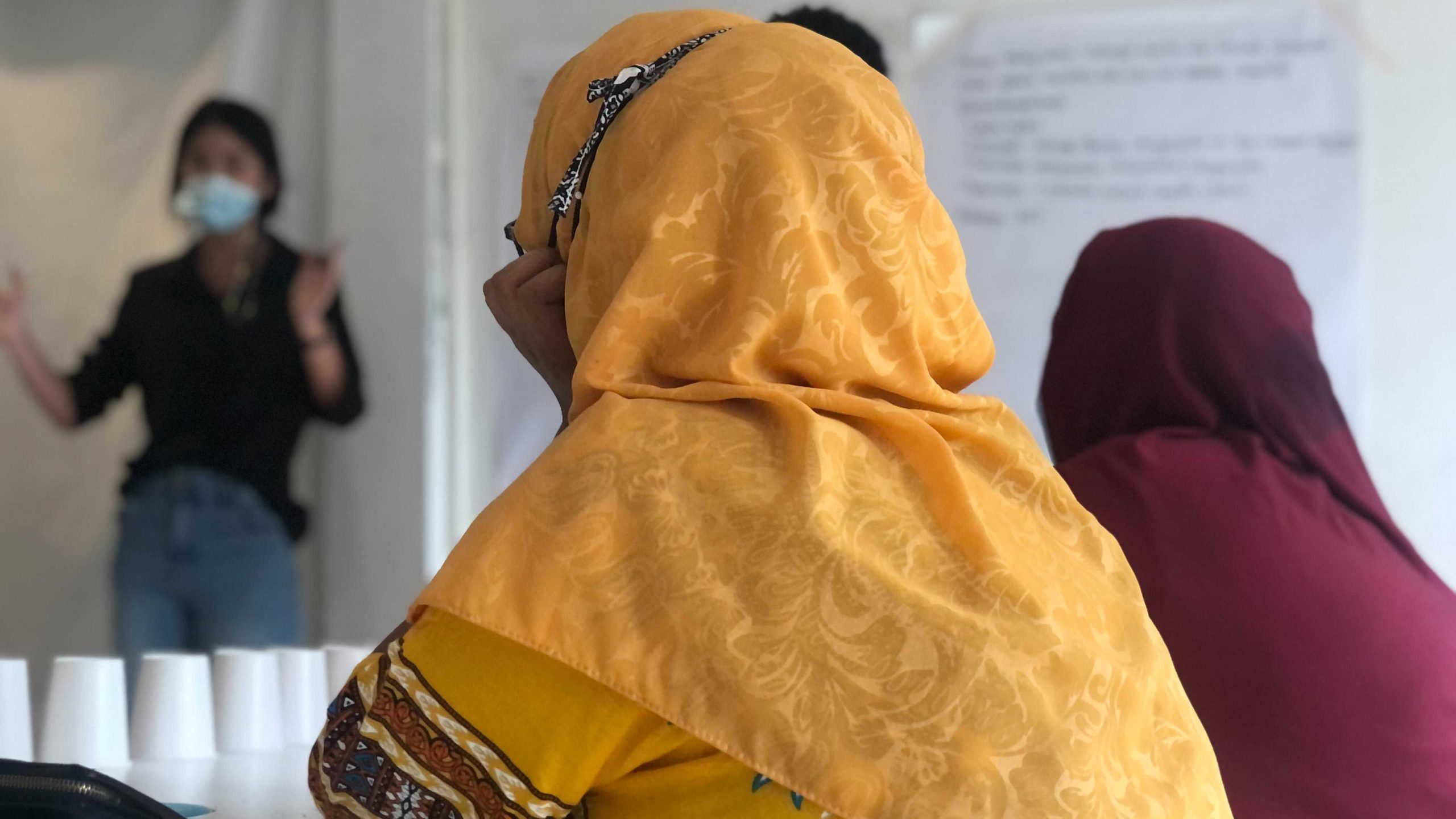
Community Engagement Projects
CAPACITY BUILDING ON-DEMAND
AAT has been providing community members with the ability to engage in mutually beneficial teaching and learning relationships with their communities for several years. Based on a set training curriculum, seven complementing sessions impart technical knowledge on particular core mentoring skills needed to excel in the role as focal points, (co-)facilitators and trainers within their communities. Since 2021, two cohorts have passed through community mentorship projects and a total of 25 refugee mentors from various communities , including China, Ethiopia, Pakistan, Sri Lanka, Somalia, and Zimbabwe benefited from this capacity building program. Based on this experience, AAT continues to provide these training sessions targeted to the communities’ needs.
PSYCHOLOGICAL FIRST AID (PFA)
Our Psychological First Aid (PFA) project aims to provide inclusive and practical guidance to refugees and asylum seekers. With a wide range of activities addressing stress management, recognizing and regulating (negative) emotions, and sharing helpful information to access psychosocial support, we aim to sustainably strengthen a community-based social support system – respecting each persons’ dignity, cultural background and individual abilities. Within the project, community members apply to become trained focal points for their respective community. Being active in seven communities in Bangkok, nine PFA focal points have been facilitating group sessions on Mental Health and Psychosocial Support (MHPSS) as well as over 200 individual counseling sessions.
REFUGEE LEADERSHIP AND REFUGEE-LED NETWORK
The Refugee-Led Network (RLN) is an initiative that empowers refugees in shaping solutions to the challenges they face – using the means of capacity building and political advocacy. The concept is inspired by the Global Refugee Forum and pursues the legitimate claim for refugee leadership and representation. Contributing their skills and first hand experience, refugees and asylum seekers are able to bring solutions that are based on the genuine interests of their communities. Thus, they must be empowered to play a major role themselves in sustainably responding to forced displacement. By supporting the set up of an effective RLN in Bangkok, we intend to create an inclusive environment in which refugees and asylum seekers feel valued to generate ideas and take action.
REFUGEE EMPOWERMENT GROUP (REG)
REG aims to improve refugees’ access to livelihood opportunities and to promote peer support among the communities. Building on existing skills – such as traditional cooking and handicrafts – we empower refugees in their pursuit of small business activities to mitigate the social and economic uncertainty many refugees and asylum seekers are facing.
Click Aroi
Click Aroi (‘aroi’ means ‘delicious’ in Thai) enhances refugees’ skills in traditional cooking, provides training on business skills and entrepreneurship, and creates channels for them to tell their stories through food. In bringing home-cooked dishes to the public, Click Aroi is a platform which enables refugee families to share their cultures and cuisines while creating unique positive experiences based on diversity and equity.
Established in 2018, we are currently collaborating with two local organizations, Na Projects and theCOMMONS Thonglor: Jointly, we provide professional guidance, business training and development opportunities, and a strong network that fosters sustainable livelihoods. Besides a monthly refugee dinner at theCOMMONS Thonglor, Click Aroi is running a regular food catering platform that allows for regular orders. Please visit our social media for more information.
Over the years, Click Aroi members have been continuously empowered to become self-reliant chefs representing eight different backgrounds – ranging from Palestine, Somalia and Ethiopia to Afghanistan, Pakistan, Sri Lanka, and Vietnam.
CHAMALiiN
The CHAMALiiN handicraft project offers women from refugee communities in Bangkok the opportunity to become economically empowered through arts that showcase their cultural identities. Female participants from Vietnam, Pakistan and Sri Lanka create patterns based on traditional Hmong and Henna designs. These are incorporated into various items, such as tote bags, pouches, table sets and postcards. AAT supports the empowerment of these women by providing training opportunities on product development, business and marketing skills and by promoting selling opportunities – online (through Lazada, Facebook and Instagram) as well as on markets and other sales events.
AAT Updates
Stay informed with press releases, announcements, refugee stories and news
- Legal Empowerment of Refugees in Southeast Asia: The ARPR Project
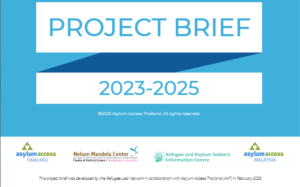 In a world where justice often feels out of reach, the Advancing Refugee Protection and Promoting Accountability in Southeast Asia through Legal Empowerment and Refugee Leadership (ARPR) Project is rewriting the narrative of the struggle of refugee communities for protection and justice. A groundbreaking Participatory Action Research (PAR) initiative, the ARPR Project champions legal empowerment, supporting refugees in Thailand, Malaysia, …
In a world where justice often feels out of reach, the Advancing Refugee Protection and Promoting Accountability in Southeast Asia through Legal Empowerment and Refugee Leadership (ARPR) Project is rewriting the narrative of the struggle of refugee communities for protection and justice. A groundbreaking Participatory Action Research (PAR) initiative, the ARPR Project champions legal empowerment, supporting refugees in Thailand, Malaysia, … - Report: Addressing the Challenges Faced by New Refugees from Myanmar in Thailand
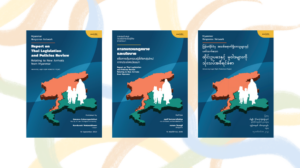 Despite not being a state party to the 1951 UN Convention on the Status of Refugees and its 1967 Protocol, Thailand has been offering humanitarian assistance to refugees for centuries, including to the newly arrived refugees from Myanmar in the last few decades. Many of the individuals and families arriving from Myanmar in recent years have been forced to flee …
Despite not being a state party to the 1951 UN Convention on the Status of Refugees and its 1967 Protocol, Thailand has been offering humanitarian assistance to refugees for centuries, including to the newly arrived refugees from Myanmar in the last few decades. Many of the individuals and families arriving from Myanmar in recent years have been forced to flee … - เสียงเรียกร้องจากชายแดน: บทวิเคราะห์การทบทวนกฎหมายและนโยบายเพื่อคุ้มครองผู้ลี้ภัยกลุ่มใหม่จากเมียนมา
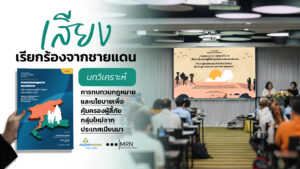 สถานการณ์ความรุนแรงภายในประเทศเมียนมาที่ทวีความรุนแรงนับตั้งแต่รัฐประหารเมื่อปี 2564 ส่งผลให้ประชาชนจำนวนมากต้องพลัดถิ่นฐาน และหนีภัยสู่ชายแดนประเทศเพื่อนบ้าน ซึ่งหนึ่งในปลายทางสำคัญ คือ “ประเทศไทย…”
สถานการณ์ความรุนแรงภายในประเทศเมียนมาที่ทวีความรุนแรงนับตั้งแต่รัฐประหารเมื่อปี 2564 ส่งผลให้ประชาชนจำนวนมากต้องพลัดถิ่นฐาน และหนีภัยสู่ชายแดนประเทศเพื่อนบ้าน ซึ่งหนึ่งในปลายทางสำคัญ คือ “ประเทศไทย…” - Advancing refugee protection and promoting accountability in Southeast Asia through legal empowerment and refugee leadership (ARPR)
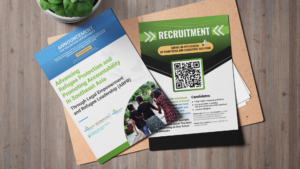 The initiative aims to strengthen refugees’ legal empowerment, enabling them to understand, use, and shape laws impacting their lives in Thailand…
The initiative aims to strengthen refugees’ legal empowerment, enabling them to understand, use, and shape laws impacting their lives in Thailand… - Click-Aroi Menu Catering
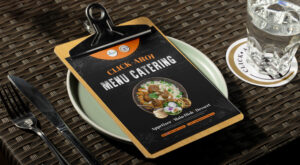 Click Aroi (‘aroi’ means ‘delicious’ in Thai) enhances refugees’ skills in traditional cooking, provides training on business skills and entrepreneurship, and creates channels for them to tell their stories through food…
Click Aroi (‘aroi’ means ‘delicious’ in Thai) enhances refugees’ skills in traditional cooking, provides training on business skills and entrepreneurship, and creates channels for them to tell their stories through food… - Education Resources in Bangkok
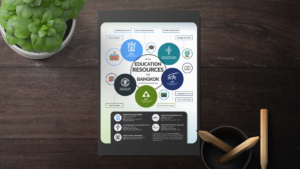 Navigating refugee education options in Bangkok can be a challenge, and here is some information to help! This infographic shows the education service providers in Bangkok, which services they provide, and their contact information…
Navigating refugee education options in Bangkok can be a challenge, and here is some information to help! This infographic shows the education service providers in Bangkok, which services they provide, and their contact information… - AAT Open Recruiting for Freelance Interpreter Position
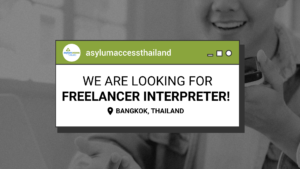 Asylum Access Thailand is looking for community interpreters for a Somali, Jrai, and Urdu languages…
Asylum Access Thailand is looking for community interpreters for a Somali, Jrai, and Urdu languages… - How to Contact Asylum Access Thailand?
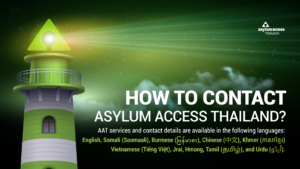 Asylum Access Thailand services and contacts are available in multiple languages. Please visit the link for more information…
Asylum Access Thailand services and contacts are available in multiple languages. Please visit the link for more information… - Embrace the Healing Power of Art!
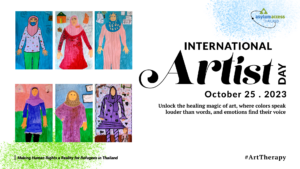 On this International Artist Day (25 Oct), Asylum Access Thailand is excited to introduce you to an incredible initiative that combines art and mental well-being for urban refugees and asylum seekers in Bangkok. Psychological First Aid…
On this International Artist Day (25 Oct), Asylum Access Thailand is excited to introduce you to an incredible initiative that combines art and mental well-being for urban refugees and asylum seekers in Bangkok. Psychological First Aid…

